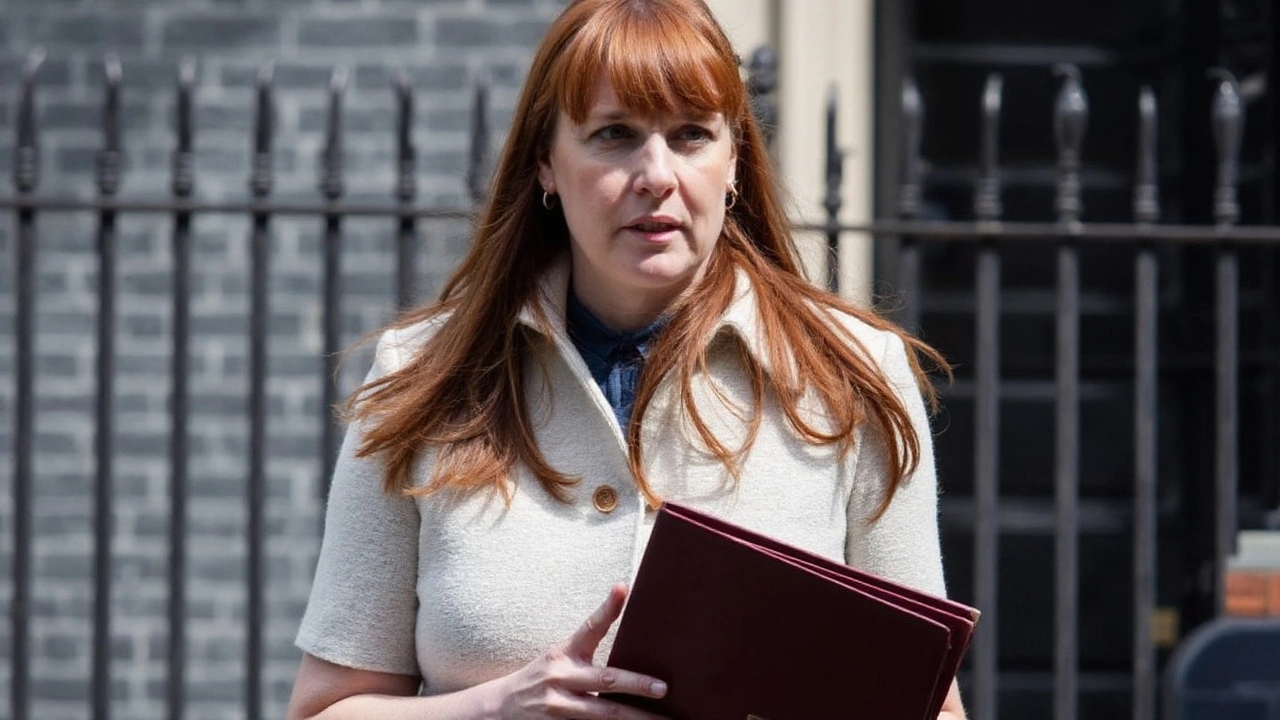What the inquiry found
Angela Rayner resigned as the United Kingdom’s Deputy Prime Minister on Friday, September 5, 2025, after an independent investigation concluded she breached the ministerial code by underpaying stamp duty on a recent property purchase in Hove. The decision landed like a thunderclap inside Westminster and immediately set off a wide-ranging reset at the top of the Labour government.
The probe, led by Laurie Magnus, the independent adviser on ministerial standards, focused on an apartment Rayner bought on England’s south coast earlier this summer. Investigators found she paid less stamp duty than required, with an estimated shortfall of around £40,000. The report said she acted in good faith but failed to seek proper expert tax advice before completing the deal—an omission that put her in breach of the conduct expected of ministers.
Rayner acknowledged the error earlier this week and referred herself for scrutiny, a step designed to show transparency and limit political damage. In her resignation letter to Prime Minister Keir Starmer, she said she took full responsibility. Starmer replied that he accepted her decision with sadness and praised her record in government and party politics.
Why does this matter? The ministerial code does not just police criminality; it enforces standards of judgment and integrity. Ministers are expected to avoid even the appearance of cutting corners, especially on financial matters. Tax compliance is a litmus test. The optics are worse still when the minister involved holds the housing brief and has made public arguments about fair tax over recent years.
Stamp duty in England is a banded tax tied to the purchase price of a property. It can be higher for second homes or buy-to-let purchases, where a surcharge applies. Mistakes can happen—rates change, circumstances differ—but the expectation for ministers is simple: get expert advice, get it in writing, and get it right.
Magnus’s report did not question Rayner’s honesty. It said she acted with integrity but fell short on process. That nuance matters to civil servants and constitutional lawyers, but politics is usually louder than nuance. When public money, taxes and personal property intersect, the pressure is unforgiving.
Here’s the timeline that set everything in motion:
- Early summer: Rayner completes a flat purchase in Hove.
- Wednesday: She admits underpaying stamp duty and refers herself to the standards adviser.
- Friday morning: Laurie Magnus delivers his findings to the Prime Minister.
- Friday afternoon: Rayner resigns; Starmer accepts; the reshuffle begins.

Political fallout and what’s next
Starmer moved fast to fill the gap. Former Foreign Secretary David Lammy was appointed Deputy Prime Minister within hours, a choice that steadies the front bench and signals continuity on foreign policy and domestic messaging. But the switch is more than a simple plug-in; it starts a new phase for a government already juggling a heavy agenda on housing, public services and growth.
Inside Labour, Rayner’s exit from government is expected to trigger a contest for deputy leader of the party, a role she held alongside her cabinet job. That separate party position carries its own power—organising the grassroots, shaping communications, and serving as a political heat shield when rows blow up. A leadership race would pull attention and energy away from legislation and give factions a chance to flex.
The wider damage is reputational. Labour won power promising clean government, steadiness and respect for rules after a long run of political turmoil. Voters hear “tax” and “minister” in the same sentence and switch to a higher alert. Even when the breach is a process failure rather than deliberate avoidance, trust is hard won and easily dented.
Rayner’s role made the sting sharper. As the minister responsible for housing policy, she has been vocal about fairness in the property market and about compliance from people in high office. That history now frames the story, and opponents will push the charge of hypocrisy even if the independent report stopped short of accusing her of intent.
What does this mean for policy? Expect officials to revisit how ministers manage personal financial dealings—tightening sign-off rules, mandating written tax guidance before transactions, and strengthening disclosures. The Cabinet Office may issue fresh guidance reminding ministers to consult HMRC or independent advisers and to document every step.
For Starmer, the job is containment and momentum. He needs the reshuffle to look like renewal, not panic. Promotions and portfolio swaps will be tested against two measures: competence and calm. Markets and the civil service watch for those signals as closely as MPs do. A stable top team keeps the legislative calendar on track and reassures the public that the government is still focused on delivery.
There’s also the legal-administrative endgame. Underpaid stamp duty is a fixable problem: HMRC can assess the correct amount, add interest, and, depending on circumstances, impose penalties. If the tax is settled quickly and transparently, that part of the story fades. The political chapter, however, will run longer, especially if the deputy leadership contest turns into a proxy battle over the party’s direction.
Opposition parties will drive this hard. The charge is simple to understand and easy to repeat. Expect calls for broader reviews into ministerial finances and fresh demands for stricter enforcement of the code. Government allies will counter that Rayner resigned quickly, cooperated fully and accepted the findings—an example, they’ll argue, of the standards system working rather than failing.
For Westminster watchers, a few questions will define the coming days. Does the reshuffle produce a clear narrative—competence first, delivery next—or does it read as crisis management? Who emerges in the deputy leader race, and does that person pull the party left or right on housing, tax and public spending? And can the government reframe the story around its policy moves before conference season locks in the headlines?
The human side shouldn’t be lost. Rayner rose from a tough background to the top tier of British politics and became one of Labour’s most effective communicators—plain-spoken, direct and often the sharpest delivery in the chamber. That presence doesn’t vanish overnight. Whether she stays on the backbenches, returns to a party position, or takes time out will matter to Labour’s tone and energy.
For now, the facts are stark. An independent adviser found a breach of standards linked to tax on a personal property transaction. A senior minister accepted responsibility and resigned the same day. A new Deputy Prime Minister is in place, and a cabinet reshuffle is underway. Phase Two of this Labour government starts under pressure, with trust, discipline and delivery at the top of the to-do list.
